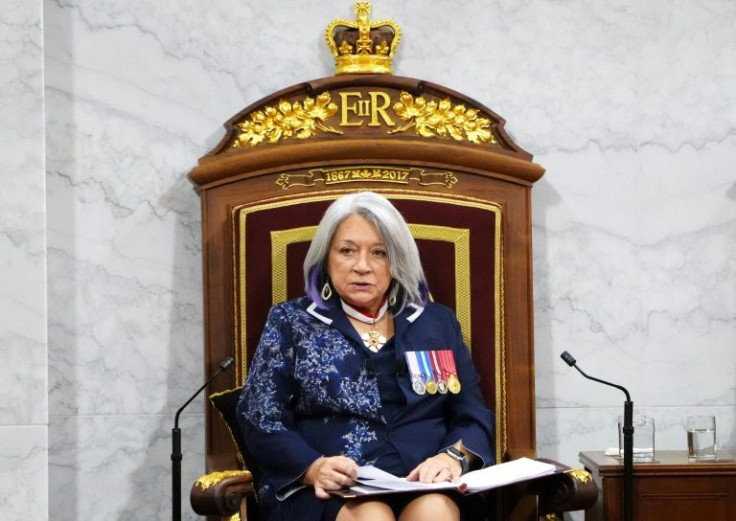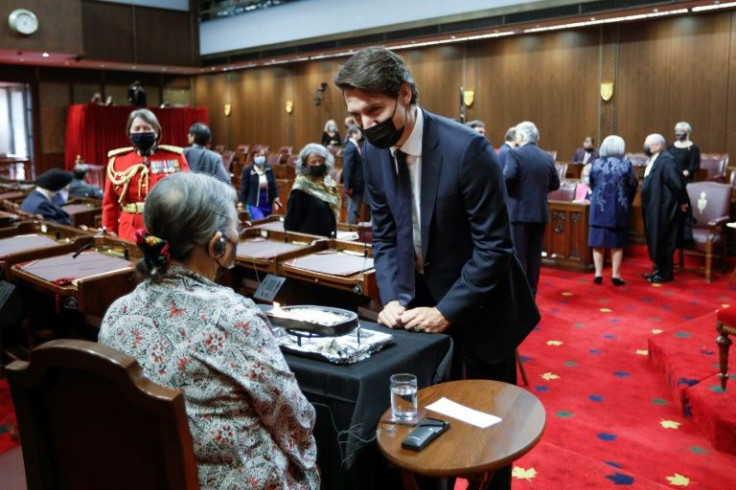Canadian Government Vows Faster Indigenous Reconciliation
Canada's governor general opened parliament Tuesday in a speech partly delivered in her native Inuktitut, highlighting the "deep wounds" reopened by the recent discovery of mass graves at schools for indigenous children.
Governor General Mary Simon, who was sworn in July to serve as the first indigenous representative of Queen Elizabeth II in Canada, said: "This is the moment to move faster on the path of reconciliation."
In the throne speech outlining Prime Minister Justice Trudeau's agenda, she said the discoveries in May of more than 1,300 unmarked graves at schools in British Columbia and Saskatchewan "horrified" Canadians and underscored how a past policy of assimilation caused "deep wounds."
Those finds, she said, "show how much the actions of governments and institutions of old have been devastating for indigenous peoples, who continue to suffer from it today."

Trudeau has made reconciliation with more than 600 tribes a priority for his government, which returned to power following a general election in September.
Highlighting the plans of Trudeau's Liberals in her speech, Simon said the government plans to taper pandemic aid down to a Can$7.4 billion (US$5.8 billion) package targeting hardest-hit sectors through the spring.
The government will also prioritize affordable housing and subsidized day care, increased immigration, tougher gun laws, and deepening partnerships in the Indo-Pacific region.
The statement follows a two-year row between Ottawa and Beijing over tit-for-tat arrests of Huawei executive Meng Wanzhou, and two Canadians, former diplomat Michael Kovrig and businessman Michael Spavor.
All three were released and repatriated in September.

In her speech Simon also promised the federal government's support for Canadians on the Pacific coast who are recovering from catastrophic flooding and mudslides caused by heavy rains that left at least four dead and one missing.
Ottawa has already deployed the army to help, and vital road and rail links between Vancouver and the rest of Canada have started to be reestablished this week.
The latest flooding to hit British Columbia, following record-high temperatures over the summer that killed more than 500 people, as well as wildfires that destroyed a town, is a stark reminder of "extreme weather worsened by climate change," Simon said.
"Our planet is in danger," she said. "From a warming Arctic to the increasing devastation of natural disasters, our land and our people need help."
To pass their agenda, the Liberals must rely on at least one other party.
With the Tories and Bloc Quebecois saying they won't support the throne speech, the New Democrats could be left to prop up Trudeau's government. Otherwise, the country may face a fourth election in six years.
© Copyright AFP 2024. All rights reserved.











